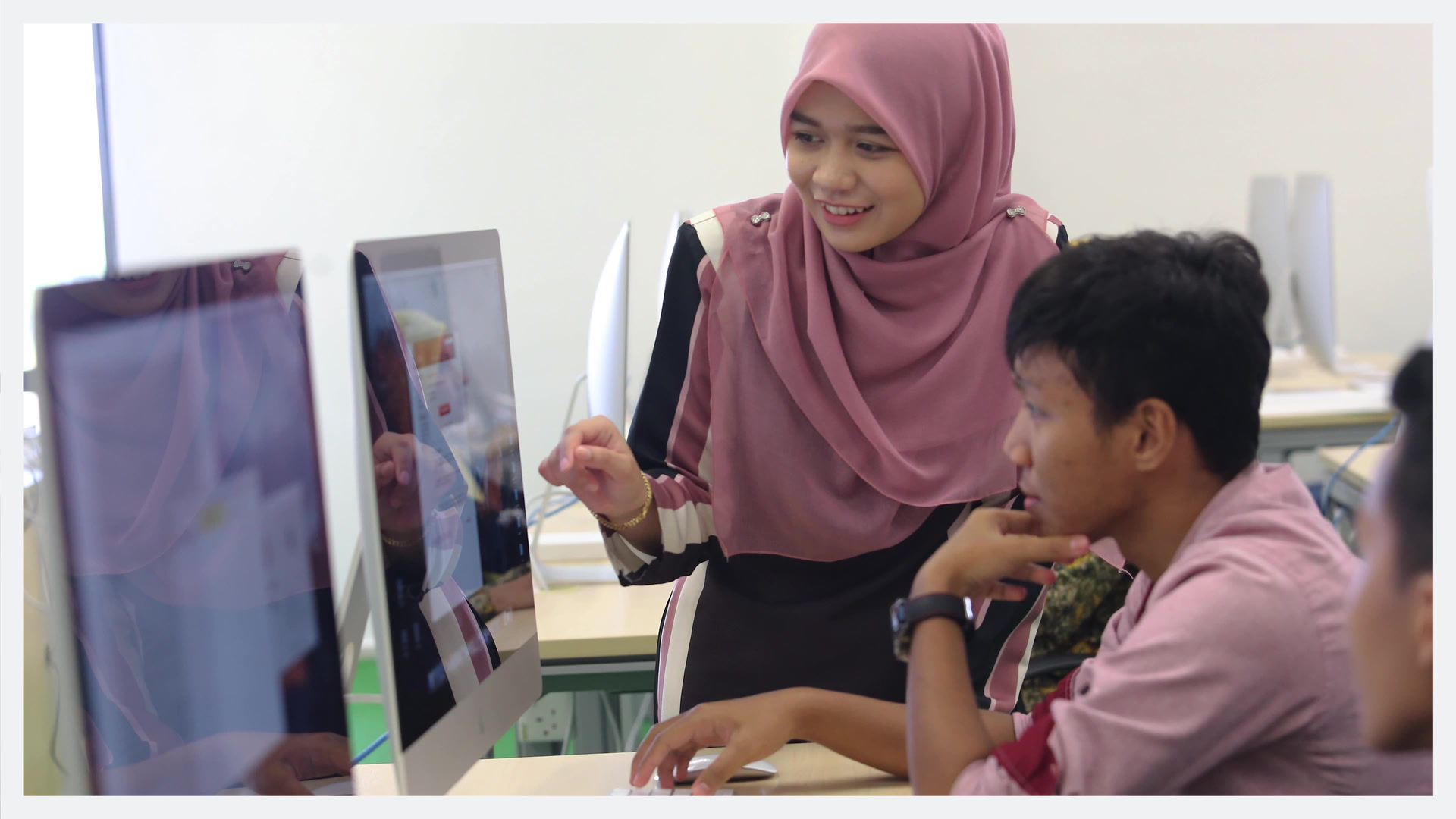From virtual tutors to accessible textbooks: 5 ways AI is transforming education

AI is transforming education Image: Unsplash/Compare Fibre

Get involved with our crowdsourced digital platform to deliver impact at scale
Stay up to date:
Horizon Scan: Nita Farahany
- Artificial intelligence (AI) holds great potential for addressing the gaps global education systems are struggling with, a new report from the World Economic Forum finds.
- Global education could benefit from AI's ability to overcome technology and financial divides and create more personalized learning approaches.
- Educators around the world have already taken to AI, with successful pilot projects and wider rollouts underway.
“About 220 million children are out of school at the moment. About seven out of ten children in least developed economies, at the end of grade four, cannot read one simple sentence or write a simple paragraph,” Laura Frigenti, CEO of the Global Partnership for Education, told the World Economic Forum.
“Not only do we have a large number of children that are out of school and have to be brought back into the system, but those who are in school are obviously not learning the skills that will make it possible for them to have a successful transition into the labour market.”
Frigenti described the situation as a “recipe for disaster”.
A new report from the Forum looks at how artificial Intelligence (AI) can help education systems fill these and other gaps.
Shaping the Future of Learning: The Role of AI in Education 4.0 highlights the potential of the technology to support teachers by automating administrative tasks and allowing them to spend more time with students as a result.
AI can also improve how students are assessed and guided while also helping to build digital literacy, critical thinking, creativity and problem-solving skills. These are among the most sought-after skill sets according to the Forum’s Future of Jobs report. Above all, AI promises a more personalized approach to teaching and learning, designed to suit each student’s needs and preferences.
5 case studies show AI's benefits in education
AI's rapid rise has led educators to use the technology to prepare learners for the future. Here are five examples from the Shaping the Future of Learning report showing how AI can positively impact educational outcomes.
AI-powered textbooks level the educational playing field in South Korea
South Korea's Ministry of Education plans to introduce AI-powered digital textbooks in primary and secondary schools starting in 2025. It’s a bid to address educational inequality as well as the reliance on private education and the country’s highly competitive education culture.
AI will be deployed to create personalized learning opportunities so pupils can learn at their own pace. The programme will start by offering mathematics, English and informatics, and eventually encompass the entire roster of subjects. The Ministry has emphasized taking a collaborative approach between human teachers and AI assistance.
In a panel session on the use of AI in education at the Forum’s recent Special Meeting on Global Collaboration, Growth and Energy for Development, Gaspard Twagirayezu, Rwanda’s Minister of Education, also underscored the value of personalized learning: “AI has the potential to assess the ability of individual students and then be able to customize content for them to learn.”
How is the World Economic Forum creating guardrails for Artificial Intelligence?
Facilitating personalized learning in the UAE
Creating an equitable educational environment is also at the heart of an initiative by the Ministry of Education in the United Arab Emirates (UAE).
The project, set to launch later this year, aims to boost students’ academic performance and enhance critical thinking skills through AI-powered personalized learning. An AI tutor will tailor lessons to individual students’ needs and learning styles, proffering the level of support they require.
It will also manage students’ continuous assessment, give targeted feedback and provide the right resources a learner needs to develop. Real-time analytics enable teachers to deploy adaptive, personalized strategies.
By automating certain teaching tasks, the project aims to enable teachers to focus more on strategic and interactive elements of the learning journey. A pilot project has already vindicated the approach by demonstrating a 10% increase in learning outcomes.
Making teaching more inclusive with AI
AI can also improve educational outcomes in areas such as accessibility.
Globally, there are 240 million children with disabilities. A large majority of them do not have accessible learning materials, technologies or educational support, the Forum’s report says. UNICEF is now leveraging AI to overcome this, creating digital textbooks that cater for diverse learners. The textbooks make content adaptable to individual students’ needs by offering functionality such as sign-language videos, interactivity, audio descriptions and text-to-speech conversion.
Students will be able to download the materials and use them offline. This will be a vital advantage in countries with large digital divides, as Deemah Al Yahya, Secretary-General of the Digital Cooperation Organization, stressed at the Special Meeting: “We have 2.7% of the population unconnected. They're not even on the grid, they don’t have basic connectivity or internet.”

West African learners get support from an AI mentor
An educational technology start-up in Mali, West Africa aims to upskill young people in a setting with limited formal employment prospects. More than 80% of employment in Africa is informal. Kabakoo Academies uses social media content and local partnerships to reach young people in urban and semi-urban West Africa.
Kabakoo focuses on experiential learning with a real-life network of students and mentors. However, its app makes an AI-based virtual mentor available 24/7, offering guidance, resources and advice as needed. It also provides personalized feedback on learners’ assignments.
Among the successes reported by students is a 44% increase in income six months after completing the programme.
Raising literacy levels in Brazil
With Brazil underperforming in the OECD’s latest PISA performance rankings, the Letrus programme aims to boost literacy levels across middle and high schools with the help of AI. The programme specifically targets the divergent performance of low- and high-income students.
Letrus focuses on personalized learning through AI, offering real-time feedback for students and progress data to educators and school managers. Teachers benefit from tailored content and practical recommendations for individual students and at class level.
The initiative has shown significant success in improving student performance in writing exams in the state of Espirito Santo, with Letrus being chosen as the official literacy development programme for all of its high schools.
The World Economic Forum’s Shaping the Future of Learning 2024 report concludes that integrating AI into education has great potential for improving student’s learning experiences and outcomes. It also points to the need for scaling AI literacy to prepare learners at all levels for future job markets. However, the Forum also acknowledges the potential risks of AI, especially if it is rolled out too quickly and without the right governance and guardrails in place.
Don't miss any update on this topic
Create a free account and access your personalized content collection with our latest publications and analyses.
License and Republishing
World Economic Forum articles may be republished in accordance with the Creative Commons Attribution-NonCommercial-NoDerivatives 4.0 International Public License, and in accordance with our Terms of Use.
The views expressed in this article are those of the author alone and not the World Economic Forum.
The Agenda Weekly
A weekly update of the most important issues driving the global agenda
You can unsubscribe at any time using the link in our emails. For more details, review our privacy policy.
More on Education and SkillsSee all
Ana Paula Assis
May 10, 2024
Phil Baty
May 8, 2024
Gayle Markovitz and Kate Whiting
May 2, 2024
Jean-Claude Brizard
May 1, 2024





